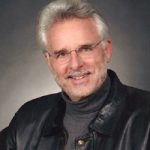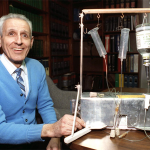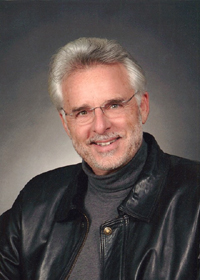
Deprecated: trim(): Passing null to parameter #1 ($string) of type string is deprecated in /home/aoiusa/public_html/wp-content/plugins/sexybookmarks/public.php on line 388
Deprecated: trim(): Passing null to parameter #1 ($string) of type string is deprecated in /home/aoiusa/public_html/wp-content/plugins/sexybookmarks/public.php on line 394
Deprecated: trim(): Passing null to parameter #1 ($string) of type string is deprecated in /home/aoiusa/public_html/wp-content/plugins/sexybookmarks/public.php on line 400
Source: First Things
By Wesley J. Smith
Secularist threats against religious liberty are spreading like a stain. Thus, I was attracted immediately to Bruce Abramson’s Mosaic column, How Jews Can Help Christians Live as a Creative Minority.
Abramson warns Christians that the space to practice their faith in the way they live is shrinking. Tell me something I don’t know, I thought. But my attention focused when Abramson (citing political scientist Peter Berkowitz) cast the trending secularist oppression we are witnessing as a clash between classical “liberalism” and contemporary “progressivism.”
Liberalism stands for “freedom and the rule of law,” he writes, “a system of ‘negative rights’ that no government may legitimately infringe (as in the U.S. Bill of Rights).” In contrast, progressives seek to ensure “equality and justice,” by guaranteeing these outcomes through the enactment of a series of “‘positive’ rights like housing, food, and health care” that someone must provide—be it government or the private sector.
Abramson’s description of the conflict between liberalism and progressivism explains the drive to promote “patients’ rights” over the consciences of doctors and other medical professionals in the abortion, assisted suicide, prescription, and other contexts. In this regard, mere legalization of these procedures does not guarantee the free and open access to them deemed by progressives as a positive right. Achieving that goal will require coercion; that is, forcing doctors (and other medical professionals, such as pharmacists) to participate—even when it violates their religious beliefs and deeply held moral convictions.
This kind of progressive authoritarianism is aborning in Canada. Earlier this year, that country’s Supreme Court conjured a Charter right to euthanasia. The debate has now shifted to whether doctors with deeply-held religious objections to killing patients should be able to opt out.
The trends are bad news for physicians who believe it would be a grievous sin to administer lethal injections or assist suicides. The Ontario and Saskatchewan Colleges of Physicians and Surgeons have issued ethics opinions that would require doctors to perform every legal medical procedure paid for by the government’s socialized system upon demand—which will include active euthanasia when the Supreme Court’s ruling goes into effect next year. If the requested physician has religious or moral objections, the Colleges have determined, the MD’s have a positive duty to find another doctor willing to do the deed to ensure that the patient receives the death she wants.
If a willing doctor cannot be found, the Saskatchewan College requires the dissenting physician to do the deed personally, “even in circumstances where the provision of health services conflicts with physicians’ deeply held and considered moral or religious beliefs.” To guarantee the positive right to die, doctors will be forced to kill. Ontario’s College even requires doctors to euthanize or refer if the person asking to die is not the doctor’s patient!
Demonstrating how thoroughly progressive thought—as defined by Abramson—has shattered classical liberalism in Canada’s medical ranks, 79 percent of the Canadian Medical Association doctors recently voted against conscience protections for physicians opposed to participation in euthanasia. In other words, in Canada, becoming dead when one is ill or disabled and wants to die counts as a positive right that trumps the negative right to “freedom of conscience and religion” enumerated in Canada’s Charter of Rights and Freedoms.
What about the USA? Our physicians currently receive conscience protections against required participation where assisted suicide is legal, provisions promoters understood as necessary to gain enactment. But that approach is in danger of erosion. Some assisted suicide boosters are already grumbling about the difficulty of getting doctors to participate in ending patients’ lives where it is legal.
Moreover, the same progressive tide sweeping religious freedom aside in Canada is also flowing here. The Supreme Court has ruled that the “negative right” to the free exercise of religion guaranteed by the First Amendment does not prevent individuals from being coerced into obeying laws of general applicability when doing so violates their religious beliefs. The Religious Freedom Restoration Act, passed in response to the Supreme Court’s ruling—the law that protected Hobby Lobby from forced coverage of abortifacient contraceptives—is now opposed energetically by previously strong progressive supporters like the ACLU. If Washington is ever controlled again by political progressives as it was in 2009, expect efforts to repeal.
Not only that, the federal RFRA does not protect against state laws that infringe upon religious liberty, and state religious protections are now vociferously opposed by progressive political adherents and large corporations—as Indiana discovered recently when it was threatened with economic ruin for attempting to pass an RFRA that extended to the operation of businesses. Thus, the stage is already set for the creation of a positive right to die here that could, one dark day, subsume the religious liberty of doctors not to participate—as is occurring now in Canada, and afflicts pro-life doctors in Victoria, Australia regarding access to abortion.
The only guaranteed way to prevent medical martyrdom is to maintain laws against assisted suicide and euthanasia. If that wall ever crumbles, orthodox Christians (and others) here may, as their Canadian brethren will next year, be forced to choose between being a doctor and violating the Sixth Commandment.





